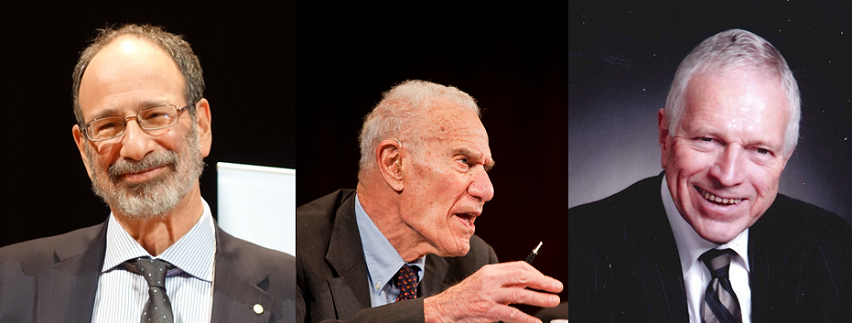There’s an exception to every rule, and the old saying about “two economists, three opinions” doesn’t always turn out to be true. The Nobel Prize-winning economists Robert Solow, Edmund Phelps, and Alvin Roth agreed on the importance of regional integration for Latin America’s development, and all three believe innovation to be a key driver for trade.
The three experts were brought together by the Integration and Trade Journal, published by the Institute for the Integration of Latin America and the Caribbean (INTAL) in exclusive interviews in which they emphasized that Latin America and the Caribbean needs to place greater emphasis on new technologies to increase export value and diversification.
They also recommended establishing clear rules that would support new ventures but that are flexible enough to adapt to new forms of production and trade.
Robert Solow, one of the founding fathers of the modern theory of economic growth, insisted that emerging countries need to move towards the technological frontier. “Latin America and the Caribbean should put more emphasis on participating in global markets. That way they’ll be able to boost trade in both the region itself and with the rest of the world. They have to develop industries where they have comparative advantages, and develop their export potential,” Solow argued. According to this Professor Emeritus at MIT, continuity in these policies is essential. “No good comes of switching policy every time the ruling party changes,” he said, adding that the region loses out on development opportunities if only a small sector of society benefits from the fruits of growth.
 Columbia University Professor Edmund Phelps said that Latin America needs to undergo “quite a transformation” to stop the pattern of relying on the export of natural resources or resource intensive products. The region, according to him, needs to transition first towards “a more efficient economy” and then towards “a more innovative” one. This is how it will become less dependent on primary exports and reach greater diversification of export products. He also commented that Latin America needs to attempt to implement reforms that allow firms to innovate more easily: “innovation was the key to China’s growth and Latin America should learn the Chinese recipe to raise its productivity.” However, he recognized that there was a question of scale and that alliances between countries in Latin America would be of great use when negotiating joint agreements with the major powers.
Columbia University Professor Edmund Phelps said that Latin America needs to undergo “quite a transformation” to stop the pattern of relying on the export of natural resources or resource intensive products. The region, according to him, needs to transition first towards “a more efficient economy” and then towards “a more innovative” one. This is how it will become less dependent on primary exports and reach greater diversification of export products. He also commented that Latin America needs to attempt to implement reforms that allow firms to innovate more easily: “innovation was the key to China’s growth and Latin America should learn the Chinese recipe to raise its productivity.” However, he recognized that there was a question of scale and that alliances between countries in Latin America would be of great use when negotiating joint agreements with the major powers.
 The third Nobel Prize winner that INTAL had the honor of interviewing was Alvin Roth, who it is hard to avoid mentioning when the topic of innovation comes up. Roth claimed that public policy needs to follow technological change very closely and that regulations need to be adapted rapidly. “There are currently many new markets, as well as markets combining to create new spaces,” argued Roth, who believes that governments shouldn’t overregulate new markets. “Regulators are faced with the challenge of finding a way to adapt the rules (…) because if there’s too much regulation, enterprises couldn’t exist,” he concluded, and warned that the region’s development depended on its innovation capacity.
The third Nobel Prize winner that INTAL had the honor of interviewing was Alvin Roth, who it is hard to avoid mentioning when the topic of innovation comes up. Roth claimed that public policy needs to follow technological change very closely and that regulations need to be adapted rapidly. “There are currently many new markets, as well as markets combining to create new spaces,” argued Roth, who believes that governments shouldn’t overregulate new markets. “Regulators are faced with the challenge of finding a way to adapt the rules (…) because if there’s too much regulation, enterprises couldn’t exist,” he concluded, and warned that the region’s development depended on its innovation capacity.
It is clear that there was more agreement than disagreement among the three economists. Integration, innovation, productivity, clear rules, and export diversification: this is the path that three Nobel Prize winners recommend that Latin America follows.
Subscribe to our new blog!



Leave a Reply